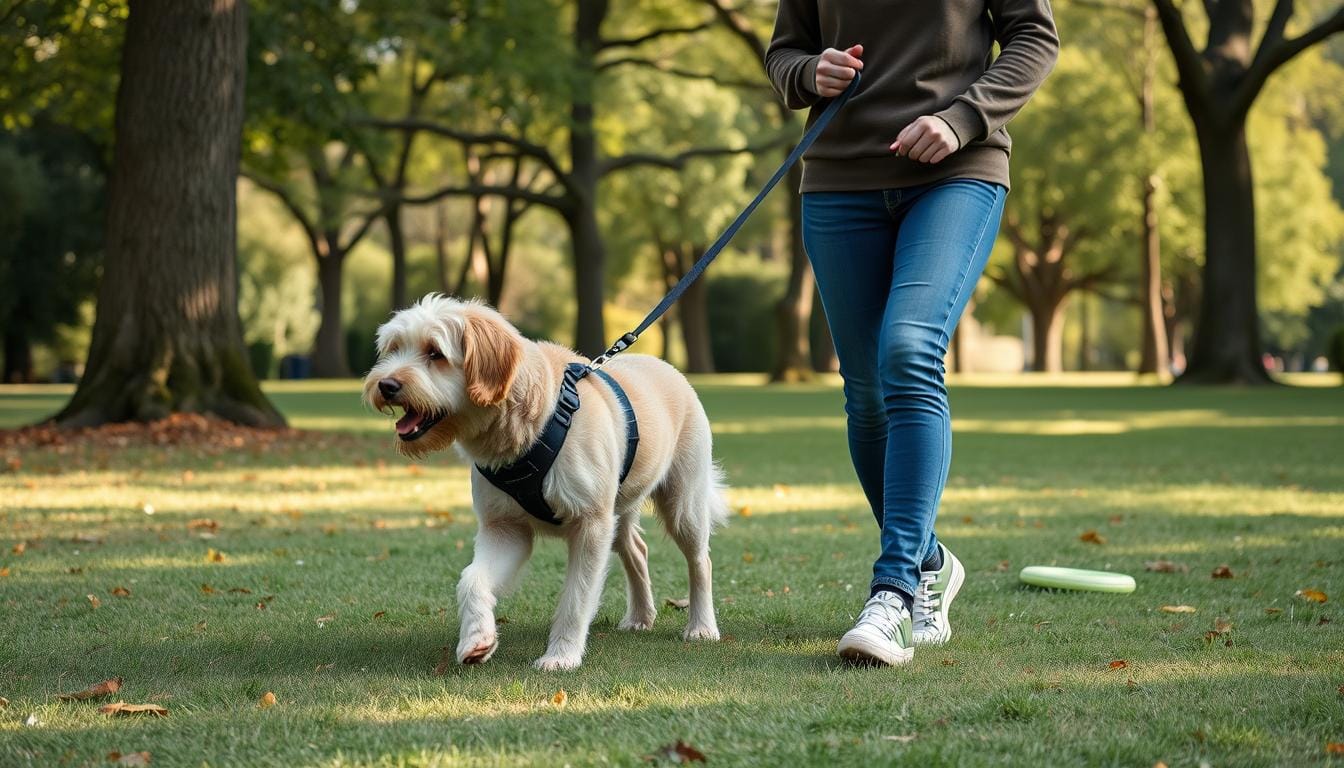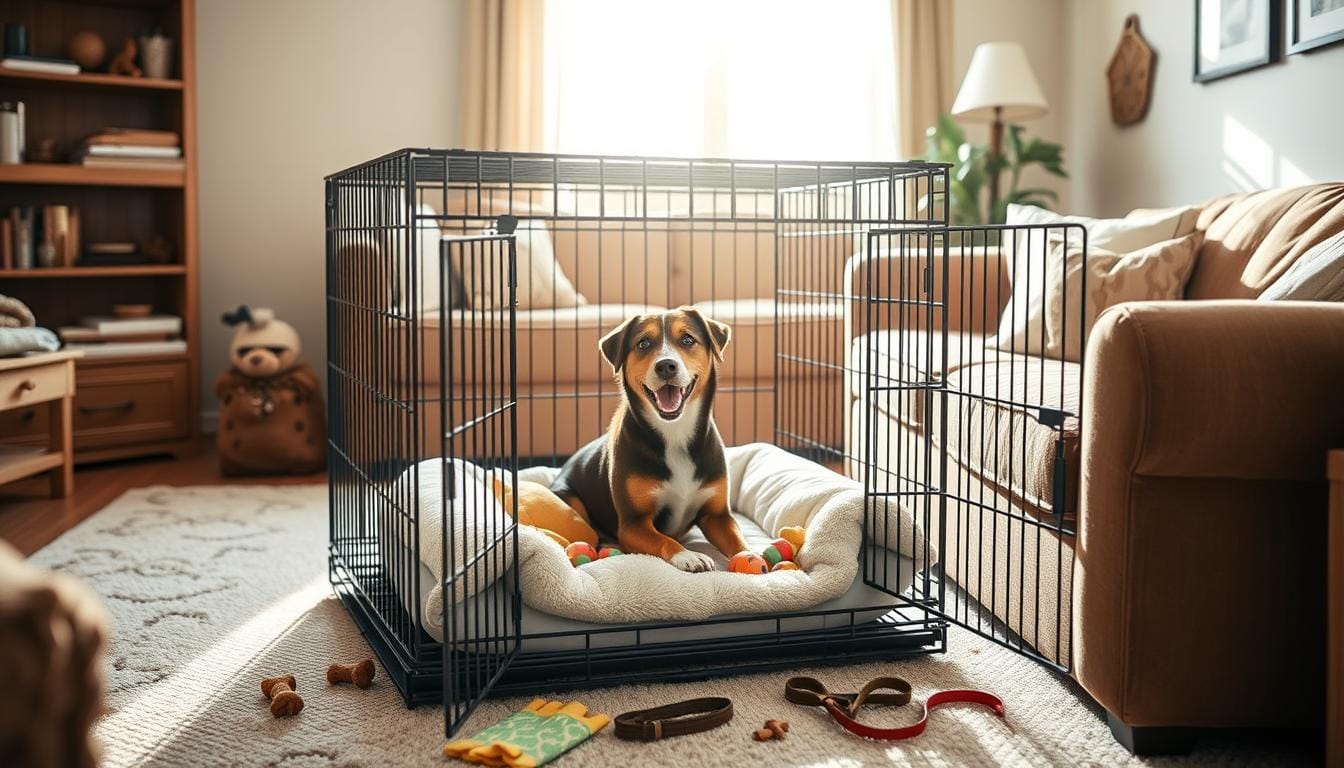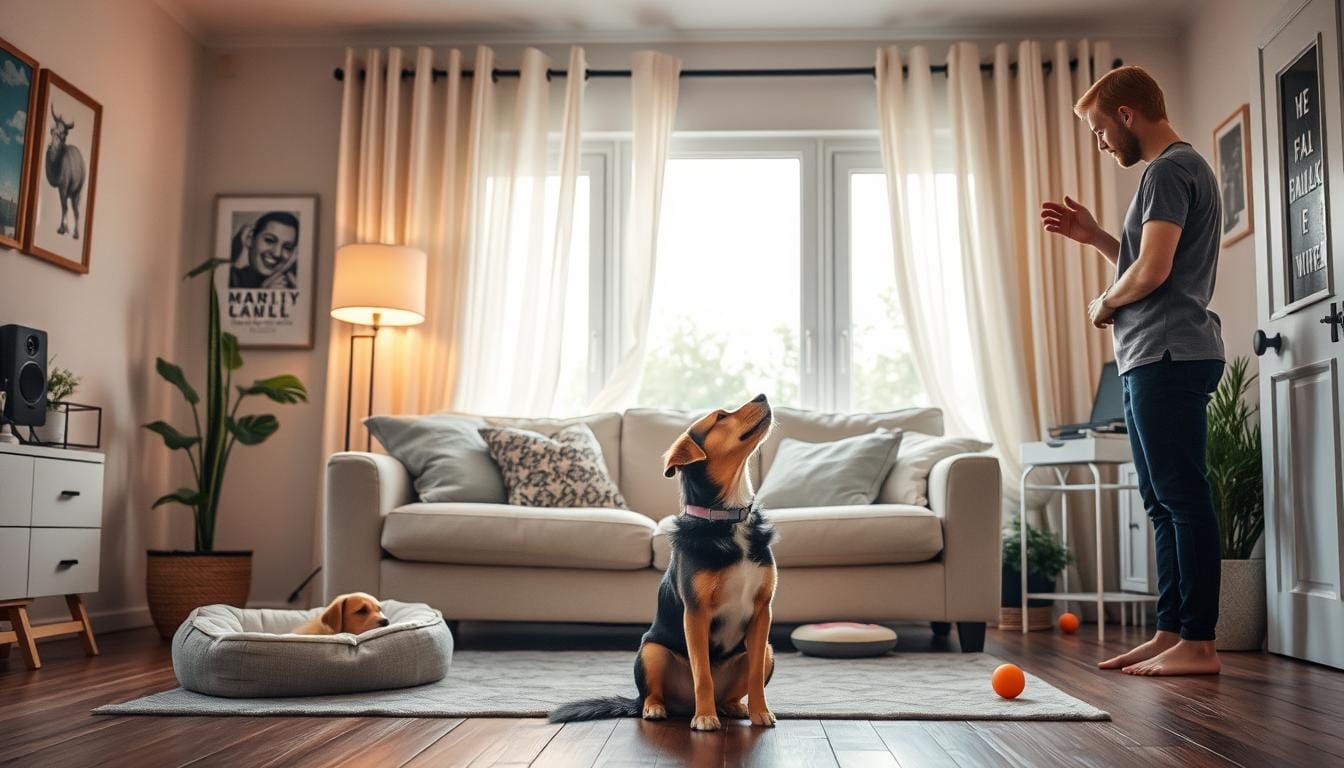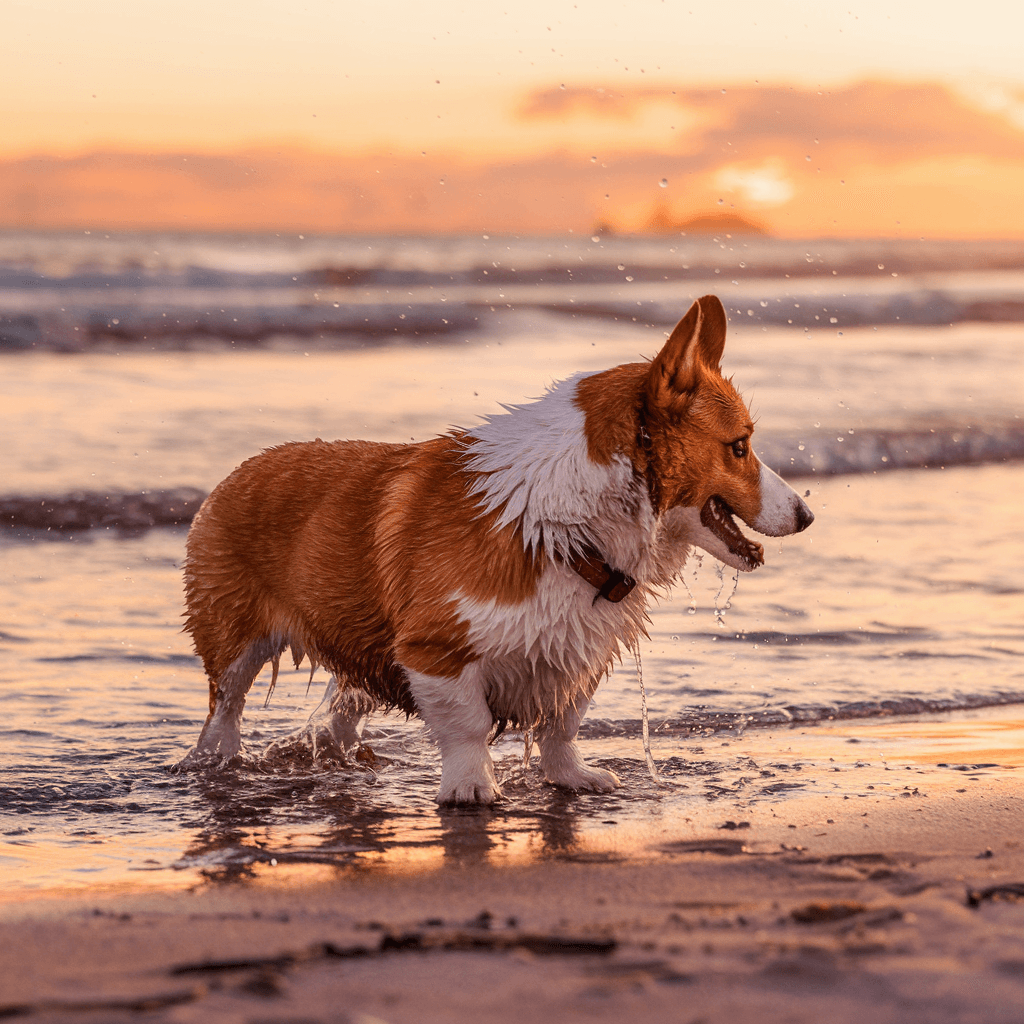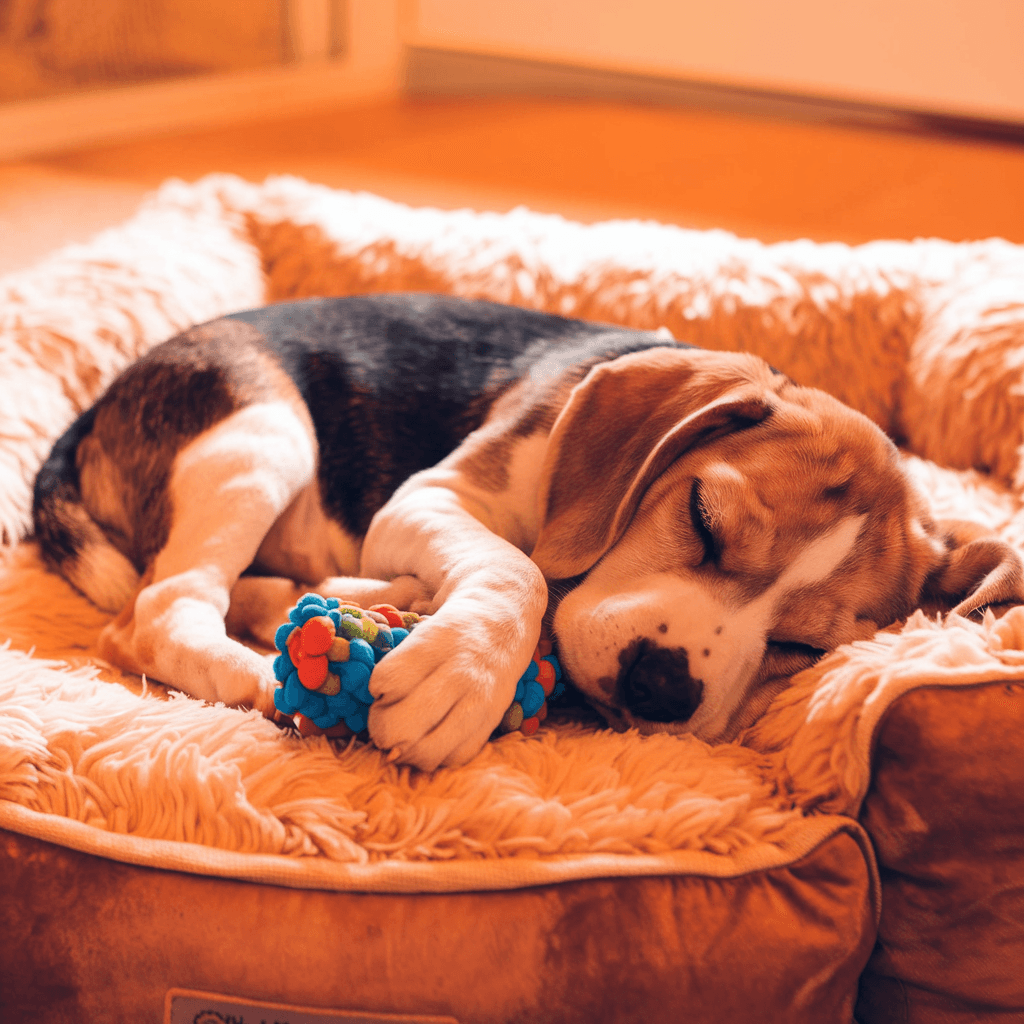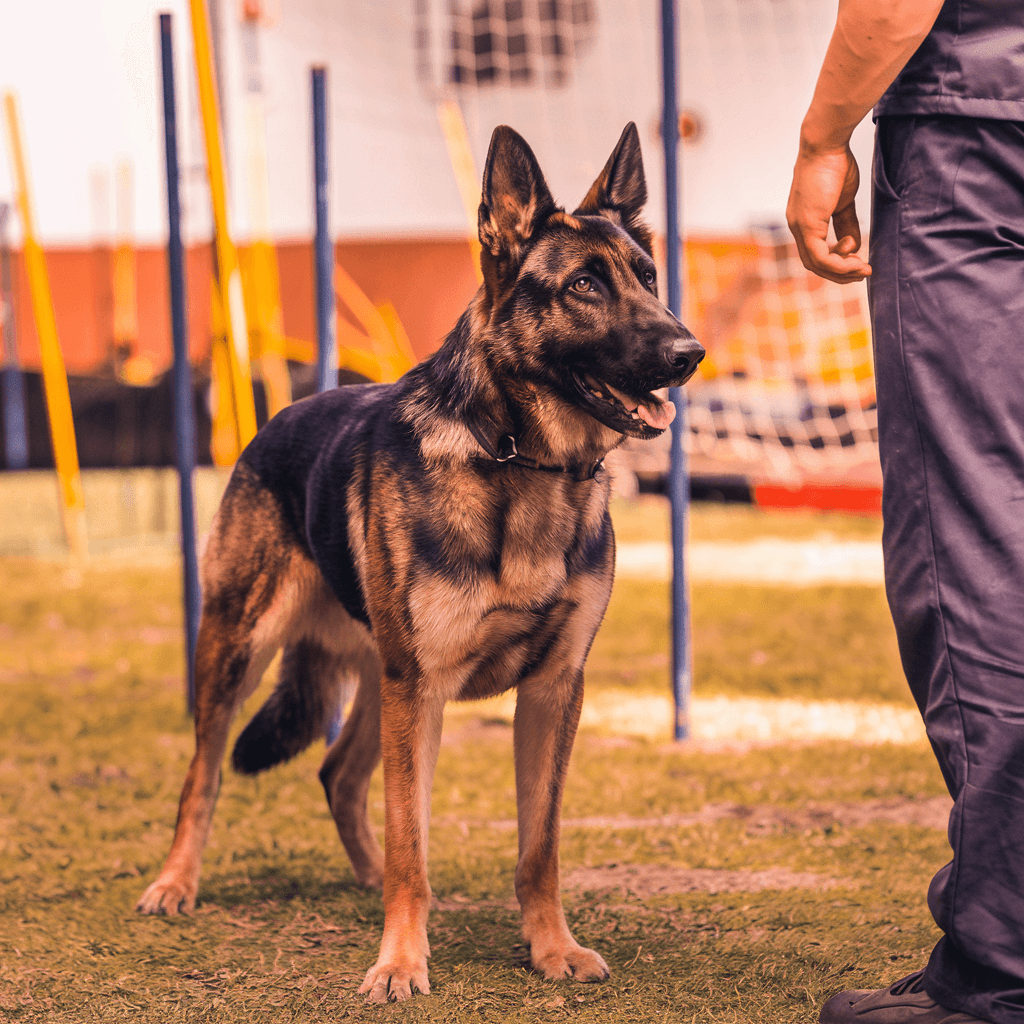What makes the Chihuahua stand out? These small dogs have big personalities. They are one of the smallest dog breeds in the world. The Wildest says they have a long history in Mexico, making them a beloved national breed.
Let’s explore the world of Chihuahuas. They have big eyes and ears that make them stand out. These small dogs are perfect companions, loved by many in cities and by celebrities.
Key Takeaways
- Chihuahuas are one of the world’s smallest dog breeds, weighing 3-6 pounds.
- They have a long lifespan of 14-16 years, with some living into their 20s.
- Chihuahuas come in over 31 coat color options recognized by the AKC.
- These dogs have moderate energy levels and require minimal exercise.
- Chihuahuas are known for their vocal nature and tendency to bark frequently.
- They’re not recommended for homes with very young children due to their fragility.
- Chihuahuas can be prone to certain health issues like heart problems and dental disease.
Introduction to the Chihuahua Breed
The Chihuahua is a beloved Mexican dog breed with a rich history. It’s small but mighty, winning hearts around the world. It’s one of the most popular toy breeds out there.
Origins and History
Chihuahuas come from ancient Mexico. They are thought to be related to the Techichi, a favorite dog of the Toltec people. The name Chihuahua comes from the Mexican state where they were first recognized in the 19th century.
The American Kennel Club recognized the Chihuahua in 1904. This was a big moment for the breed. The first Chihuahua registered with the AKC was named “Midget” and belonged to H. Raynor of Texas.
Popularity and Cultural Significance
In the 20th century, Chihuahuas became popular pets for city living. Their fame grew in the early 2000s with movies like “Beverly Hills Chihuahua” and TV shows like “Sex and the City.”
The breed’s impact goes beyond TV and movies. The minor-league baseball team in El Paso, Texas, is named the “Chihuahuas.” This shows how much the breed is loved in popular culture.
| Characteristic | Details |
|---|---|
| Size | 5-8 inches (13-20 cm) tall |
| Weight | 1-6 pounds (0.5-3 kg) |
| Lifespan | 14-16 years |
| AKC Recognition | 1904 |
| Breed Group | Toy |
Physical Characteristics of Chihuahuas
Chihuahuas are known for their unique chihuahua appearance. They are easy to spot among other dog breeds. These small dogs have big personalities.
Size and Weight
Chihuahuas are the smallest dogs in the world. They grow to be 6 to 10 inches tall and weigh under 6 pounds. Their small size is perfect for living in apartments and is easy to carry.
Coat Types and Colors
Chihuahuas have two types of coats: smooth and long-haired. They come in many colors like white, tan, black, and more. Their varied coats and colors make them even more charming.
Distinctive Features
The apple head chihuahua is a favorite among the breed. They have round heads, big eyes, and erect ears. Their necks are slightly arched, and their tails are uniquely shaped, adding to their grace and alertness.
| Feature | Description |
|---|---|
| Head Shape | Round “apple” head or elongated “deer” head |
| Eyes | Large and expressive |
| Ears | Prominent and erect |
| Body | Slightly longer than tall |
| Tail | Loops up or hangs in a sickle shape |
Despite their small size, Chihuahuas live a long time. They can live from 10 to 18 years. This makes them great long-term friends for those who welcome them home.
Chihuahua Temperament and Personality
Chihuahuas have big personalities in small bodies. They are loyal and have a unique temperament. Despite their size, they are energetic and full of life.
- Chihuahuas weigh 3 to 6 pounds and are 5-8 inches tall.
- They live a long time, up to 18 years.
- They adapt well to different homes.
Chihuahuas have a special personality. They are very loyal to their owners. This loyalty can sometimes turn into protectiveness, with about 25% showing aggression or fear towards other dogs.
They also love to talk. About 33% bark a lot because they are always alert. This makes them good watchdogs, but they need training to stop excessive barking.
| Trait | Percentage |
|---|---|
| Adaptability | 50% |
| Aggression/Fearfulness | 25% |
| Vocal Behavior | 33% |
Knowing about the chihuahua temperament helps you have a better relationship with them. With the right training and socialization, they can be loving and fun companions.
Health Considerations for Chihuahuas
Chihuahua health is key when caring for these small friends. They are generally tough but face special health issues. Owners need to know about these problems.
Common Health Issues
Chihuahuas often get dental problems. About 80% of dogs over 3 years old have periodontal disease. Their small mouths make them five times more likely to get it.
Patellar luxation, a condition that causes pain and arthritis, affects nearly 1 in 4 Chihuahuas. Heart issues are also common, with 80% of congestive heart failure cases in the breed.

Lifespan and Aging
Chihuahuas live a long time, with an average lifespan of 14-16 years. They are one of the longest-living dog breeds. As they get older, they may face issues like tracheal collapse and COPD.
Preventative Care
Regular vet visits are crucial for keeping Chihuahuas healthy. Dental care is key to prevent dental disease. Keeping them at a healthy weight is also important to avoid diabetes, joint problems, and heart issues.
| Health Issue | Prevalence | Prevention/Management |
|---|---|---|
| Dental Problems | 80% of dogs over 3 years | Regular teeth cleaning, dental chews |
| Patellar Luxation | 25% of Chihuahuas | Weight management, joint supplements |
| Heart Disease | 80% of CHF cases | Regular check-ups, heart-healthy diet |
Caring for Your Chihuahua
Chihuahuas need special care because of their high metabolism. They require premium dog food to get the right nutrients from small meals. Adult Chihuahuas should eat twice a day to stay healthy.
Exercise is important for Chihuahuas. They need at least 30 minutes of activity daily, split into two walks. This lets them explore and sniff around. Playtime and short training sessions keep them active and smart.
Grooming depends on their coat type. Short-haired Chihuahuas need weekly brushing, while long-haired ones need it two to three times a week. Regular baths with puppy-safe shampoos keep their coat clean. Don’t forget about dental care to prevent health problems.
Socialization is crucial in small dog care. Introduce your Chihuahua to new people, places, and experiences early. This helps prevent anxiety and excessive barking. Use positive, reward-based training for the best results.
Safety is a top priority for these delicate dogs. Puppy-proof your home, watch them around big dogs or kids, and consider microchipping or ID tags. Chihuahuas don’t handle cold well, so dress them warmly when it’s chilly.
“Chihuahuas are clever, loving companions. With proper care and attention, they can lead happy, healthy lives for many years.”
By understanding and meeting their specific needs, you’ll ensure your Chihuahua thrives in your care.
Training and Socialization
Training and socializing Chihuahuas is key for their growth. These small dogs bond strongly with their owners but may shy from others. Early socialization helps stop too much barking and growling at strangers.
Basic Obedience Training
Training Chihuahuas works best with positive methods. Use treats, praise, or toys to reward them. Keep training sessions short and fun to keep their interest.
Signing up for a puppy obedience class can help. It reinforces good habits and tackles stubbornness.
Socialization Techniques
Begin socializing your Chihuahua puppy between 8 and 16 weeks old. Introduce them to various people, from kids to seniors. This helps prevent them from being too protective of one person.
Gradually introduce different sounds, like household noises and traffic. This builds their confidence.

Addressing Behavioral Challenges
Older Chihuahuas might need more time to become friendly. Be patient and consistent. Avoid overwhelming them or forcing them to interact, as this can make their fears worse.
Instead, create positive experiences with treats and gentle exposure to new places.
| Socialization Do’s | Socialization Don’ts |
|---|---|
| Start early (8-16 weeks) | Procrastinate socialization |
| Use positive reinforcement | Rely on punishment-based methods |
| Expose to various people and sounds | Ignore fearful behaviors |
| Enroll in structured classes | Force interactions |
Consistency is crucial when socializing small dogs like Chihuahuas. Regular, positive experiences are better than infrequent, long ones. With patience and the right techniques, your Chihuahua can become a friendly and well-adjusted companion.
Exercise and Mental Stimulation Needs
Chihuahuas need about 20 to 30 minutes of daily activity. This can be split into shorter sessions. A brisk walk or a game of fetch can meet their physical needs and satisfy their natural instincts.
Indoor activities are key, especially when it’s bad outside. Toys, obedience training, or mini agility courses can keep them active. Watch for signs of too much, like panting or less interest.
Mental stimulation is as important as physical exercise for dogs. Chihuahuas benefit from activities that challenge their minds. Puzzle toys, scent games, and learning new tricks can prevent boredom and bad behaviors.
“A tired dog is a good dog, but a mentally stimulated dog is an even better one.”
Here are some activities to keep your Chihuahua active and mentally sharp:
- Hide-and-seek games
- Scent walks with plenty of sniffing time
- Rotating toy selection to maintain interest
- Short training sessions to learn new commands
- Puzzle feeders for meal times
Every Chihuahua is different. Tailor their activities to their energy and health. With the right mix of physical and mental challenges, your Chihuahua will do great and you’ll grow closer.
| Activity | Physical Benefit | Mental Benefit | Duration |
|---|---|---|---|
| Short walks | Cardiovascular health | Environmental stimulation | 10-15 minutes |
| Fetch | Agility and coordination | Focus and obedience | 5-10 minutes |
| Puzzle toys | Fine motor skills | Problem-solving | 15-20 minutes |
| Training sessions | Body awareness | Cognitive stimulation | 5-10 minutes |
Chihuahua Nutrition and Feeding
A balanced diet is key for chihuahuas. They need special nutrition because of their small size. Chihuahuas, weighing less than six pounds, have different dietary needs than bigger dogs.
Dietary Requirements
Chihuahuas need a high-quality diet. The Association of American Feed Control Officials suggests 18% protein and 5.5% fat for adult dogs. For chihuahuas, foods with 30-33% protein are best.
Feeding Schedule
Chihuahuas have small stomachs and do better with small meals. Adult chihuahuas should eat three times a day. This keeps their energy stable.
Puppies under 3 months might need 4-6 meals a day. Between 3-6 months, they should eat 3-4 meals.
Avoiding Overfeeding
Overfeeding is a big problem for chihuahuas. They can be overweight if they’re 10-20% above their ideal weight. Being obese can cause joint issues, heart disease, and weaken their immune system.
Interestingly, a 5-pound active chihuahua burns almost three times more calories per pound than a 150-pound dog.
| Age Group | Dietary Focus | Feeding Frequency |
|---|---|---|
| Puppies | High calorie and protein for growth | 4-6 meals daily |
| Adults | Maintenance diet | 3 meals daily |
| Seniors (8+ years) | Increased protein for muscle retention | 3 meals daily |
Every chihuahua is different. Adjust their food based on their activity level, age, and needs. Regular exercise and avoiding table scraps help keep them healthy.
Grooming Your Chihuahua
Regular grooming is key to keeping your Chihuahua looking great. We suggest grooming them once a month. Also, clean their ears and eyes weekly. Waterless shampoos can keep them smelling fresh between baths.
Using rubber curry brushes helps with shedding and massaging. Nail care is also important. Use small clippers and file nails regularly to keep them the right length.
For a healthy coat, feed them omega-3 and omega-6 fatty acids. Choose premium dog foods without corn, wheat, or soy. Short-haired Chihuahuas need weekly brushing, while long-haired ones need more.
Bathe them in lukewarm water on a non-slip surface. Start grooming early, around 10 weeks old. Positive grooming experiences will strengthen your bond. These tips will keep your Chihuahua healthy and happy.







